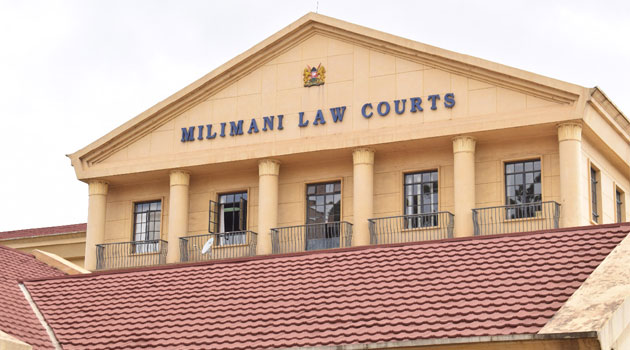All pleas and cases relating to county law enforcement in Nairobi County will henceforth be handled at the Milimani Law Courts.
This follows a notice informing members of the public that the Judiciary will take over the role.
According to the notice seen by The Kenya Times, the move is in line with a Memorandum of Understanding (MoU) signed between the Council of Governors and the Judiciary in 2016 to facilitate seamless enforcement of county laws.
Consequently, the Judiciary announced that all county pleas will be registered at the Milimani Law Courts County Registry.
Additionally, persons accused of breaking county legislation will face charges at the Milimani Law Courts at court number 13.

“All Nairobi County pleas will now be registered at the Milimani Law Courts,” the notice read in part.
The Judiciary further announced that accused persons will pay fines at Milimani upon issuance of an invoice.
This is in line with the Judicial reforms requiring court users to pay fines and cash bails in open court sessions.
For those with ongoing county cases, the Judiciary announced that hearings will continue at the Nairobi County Courts until further notice.
The announcement came months after Nairobi Governor Johnson Sakaja announced intentions to partner with the judiciary in improving access to justice.
Also Read: Judiciary Announces 961 Jobs for Kenyans with C- in KCSE; How to Apply
Speaking in July, the Nairobi Governor noted, “The CoG is committed to partnering with the Judiciary through the MOU signed with the NCAJ to improve access to justice”.
Details of Mou with Judiciary
In the Mou signed in 2016, governors and the Judiciary developed a framework to allow the judiciary’s involvement in administering justice at the county level.
Later in 2018, the governors further reached an agreement that would see the Judicial arm of government establish registries dedicated for county laws.
Also Read: Martha Koome Makes Changes in Payment of Fines, Cash Bail
In addition, the parties devised a mechanism to ensure that fines collected from county law offenders are sent back to the respective counties.
“The meeting sought to look for ways in which fines that accrue from County legislation can be ploughed back to the County,” a statement from the 2018 meeting read in part.











































































